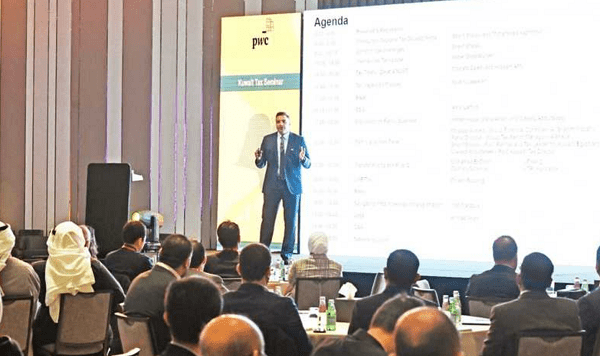In the annual tax symposium held by PricewaterhouseCoopers Middle East in Kuwait, senior tax officials and analysts, as well as specialized experts from PricewaterhouseCoopers exchanged insights on the rapidly changing and evolving tax landscape in Kuwait and the Middle East in light of regional and global developments.
The symposium, titled “Back to Work – Exploring the Changing Tax and Commercial Landscape in the State of Kuwait”, which was held on 8 February 2023 at the Grand Hyatt, also discussed tax challenges, tax agreements (zakat) and the national labor support tax, with a focus on family businesses, transfer pricing, the second pillar, and the financial and legal aspects of international reporting standards.
As reported by Al Qabas, the partner and head of the tax sector at Pricewaterhouse, Sherif Shawqi, explained that the aim of the conference is to keep abreast of the developments taking place in the outside world in the field of tax application. Shawqi also pointed out that there are many laws introduced by the World Trade Organization, as well as those that are applied in neighboring countries, such as the Emirates, and various developments have appeared in the field of tax application in the countries of the GCC. He added that in Kuwait, tax-related laws are not developed enough to keep pace with what is happening outside it in the world of taxation, which leads to some difficulties in the application, especially since many Kuwaiti companies have projects and businesses outside the country, which necessitates keeping pace with tax-imposing applications to avoid problems or obstacles in other countries.
Moreover, the conference covers the legal aspects of imposing taxes and international developments with regard to taxes, and the second pillar of the WTO, as well as highlighting the tax challenges and problems faced by companies.

